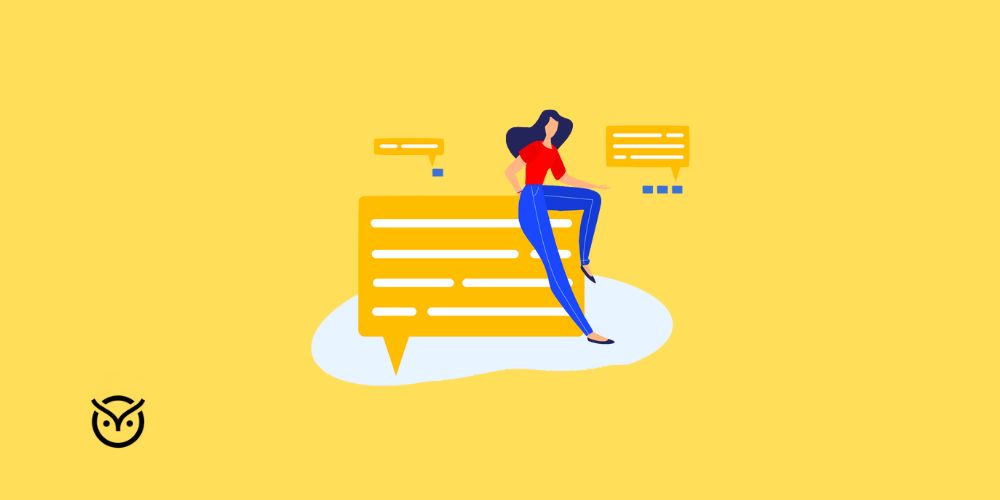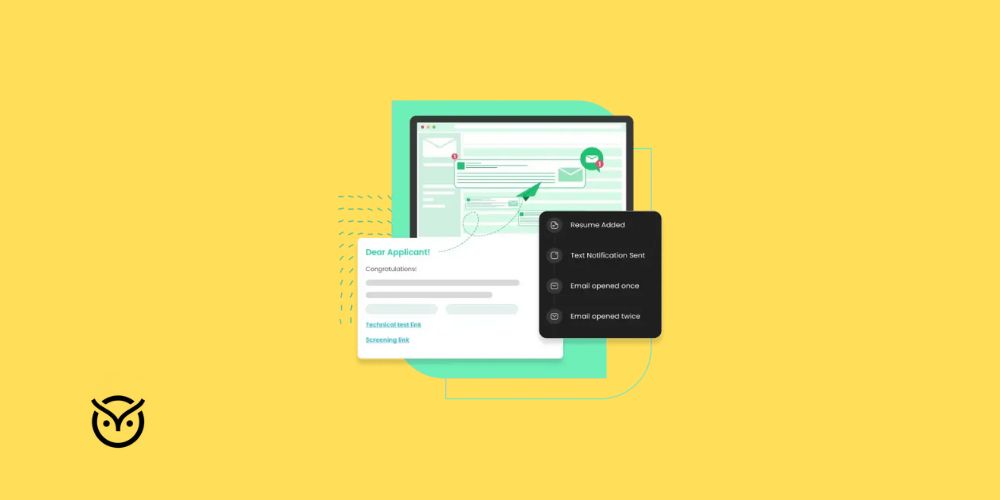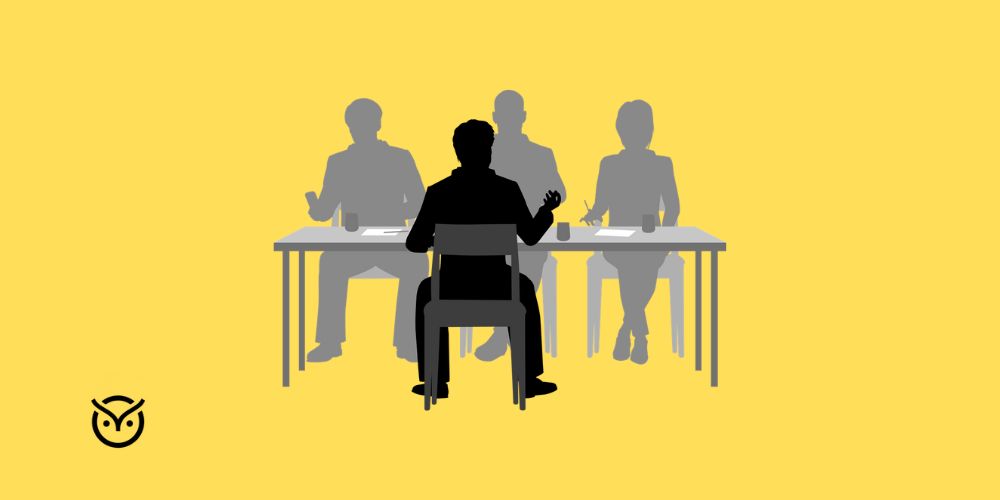
TL;DR
- Get to know what a panel interview really is and who’ll be in the room
- Learn why panel interviews can feel overwhelming (multiple people, different styles)
- Use a step-by-step prep plan so you stay grounded and confident
- Practice key panel interview questions and prepare smart questions to ask.
- Stay calm with breathing, notes, eye contact, and good posture
- Send a panel interview thank you email to reinforce your strengths
You walk into a room, and there are three people looking at you. Your heart beats a little faster. You’re getting ready for a panel interview, wondering if you’ll slip up in front of several people at once. Many job seekers freeze up, forget what to say, or feel overwhelmed because they don’t know what to expect or how to handle multiple voices at once.
In this blog, you’ll learn the meaning of a panel interview and discover a clear plan for how to prepare so it doesn’t feel like a high-stakes exam. Here, you will learn what a panel interview is, how to prep, how to calm nerves, and even what to do after.
What Is a Panel Interview?
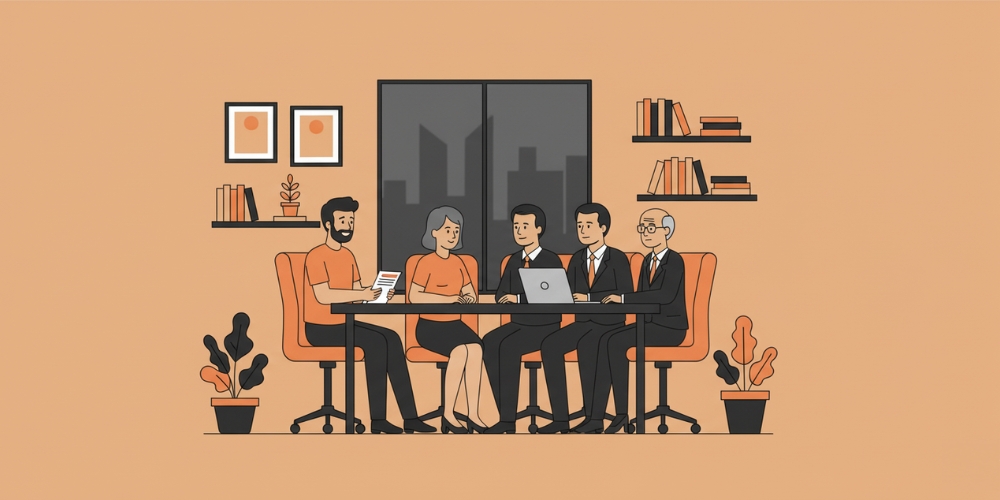
A panel interview is when more than one interviewer talks to you at the same time, instead of a typical one-on-one meeting. Sometimes that means two people, sometimes three, four, or more. They might include HR staff, someone from the team you’d work with, and maybe a senior manager.
Here are some similar terms and clarifications:
- Panel interview meaning: The meaning of a panel interview is this format: several interviewers, one candidate.
- What is a panel interview? It helps interviewers get different perspectives at once.
- Panel for interview is just a less common way people refer to that group of interviewers.
Panel interviews are used more often now. About 34% of organizations use panel interviews to evaluate candidates more thoroughly.
Why Panel Interviews Can Feel Overwhelming
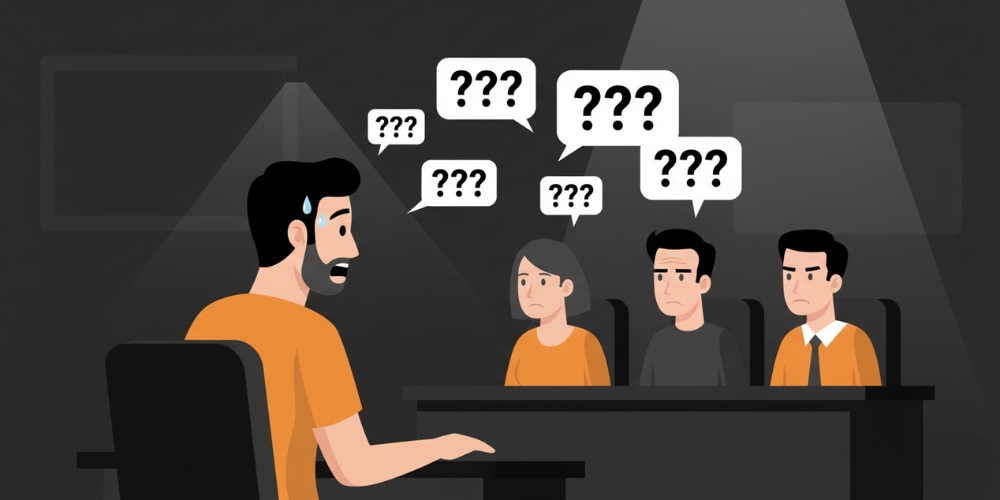
Being tested by multiple people at once can raise your stress levels. Here are reasons people often feel overwhelmed during a panel interview:
Multiple voices, multiple styles
Each interviewer may ask different styles of common panel interview questions or follow different patterns. It’s hard to shift between them smoothly.
Harder to read cues
You can’t lock in on one person’s feedback (nod, smile, tone). You risk ignoring someone unintentionally or feeling judged from many angles.
More pressure to cover all bases
They might ask technical, behavioral, or situational questions all in one session. If your prep is weak in one area, you might get caught off guard.
Less time to build rapport
You’ve got to connect with several people quickly. That’s tricky. A good rapport with one interviewer may not carry over to another.
Fear of making mistakes
Because you have more eyes watching, small mistakes feel like they’ll be magnified (you freeze, stutter, lose track).
Overwhelm from logistics
You may worry about what to take to a job interview or how to manage answering when multiple people ask questions.
Stress Meter — Why Panel Interviews Can Feel Overwhelming
Pick a scenario, slide from calm to panic, then get a short coping tip you can use during your panel interview.
How to Prepare for a Panel Interview (Step-by-Step)
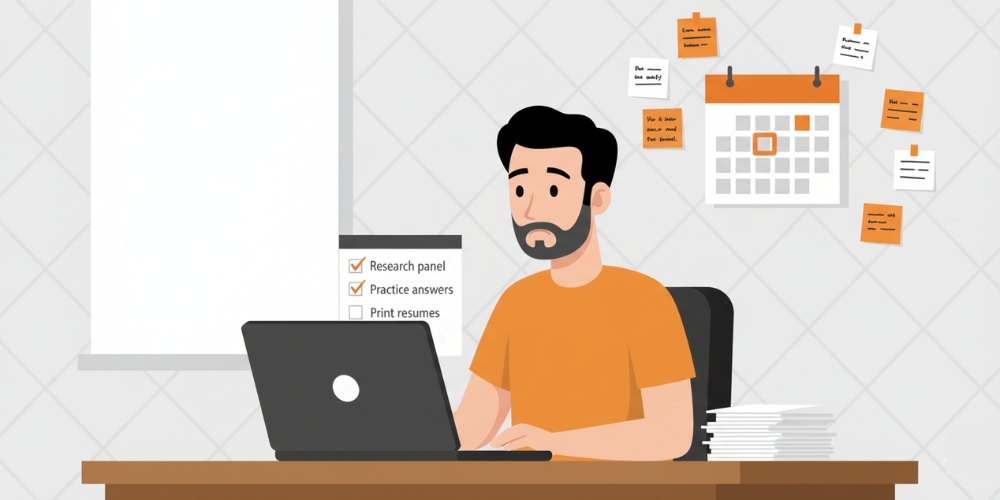
The good news is that panel interviews are manageable once you know how to prepare for a job interview with multiple people in the room. Here’s a simple prep plan:
Research the panel
Ask in advance who will be on the panel. Look them up on the company website or LinkedIn. Knowing their roles will help you tailor answers. For example, a finance manager may want numbers while HR focuses on teamwork.
Review the job description closely
Match your skills to the requirements. Jot down 3–4 stories that prove your skills. This way you’re ready for both behavioral and technical panel interview questions.
Practice for variety
A panel format means you may face technical queries, culture-fit checks, and scenario testing in one sitting. Prepare for common panel interview questions like “How do you handle conflict?” or “Describe a time you solved a tough problem.”
Get your materials ready
Bring multiple copies of your resume. This is part of job interview etiquette. Even if the panel already has your details, having copies shows you’re prepared.
Prepare your own questions
Don’t forget you can ask back. Have 2–3 solid questions to ask during a panel interview. Example: “How does this role contribute to cross-team projects?” This shows interest and initiative.
Do a mock run
Sit with a friend or mentor and practice with two or three people firing questions at you. It’ll give you a feel for the pace.
Tips for Staying Calm During the Panel Interview
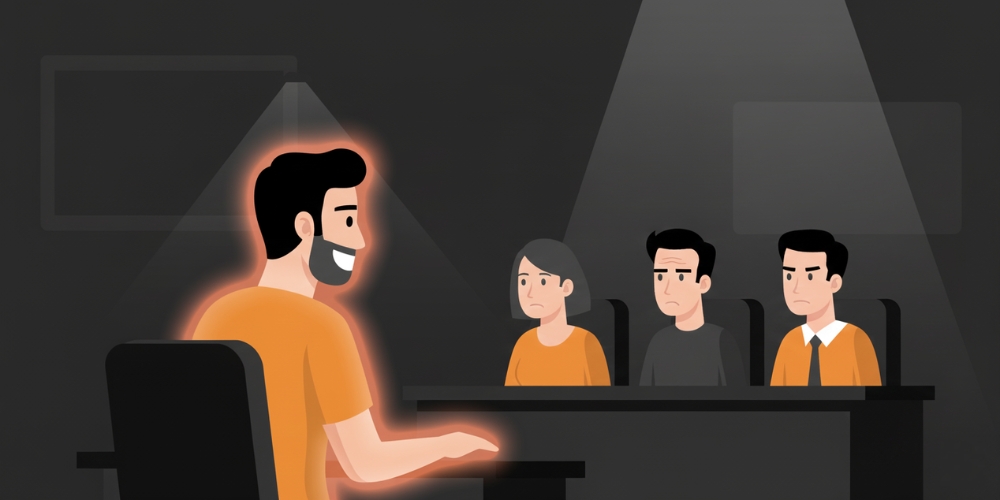
Even if you’ve prepared, nerves can creep in. Here’s how to stay composed in a panel interview:
Start strong with greetings
Yes, you should greet or shake hands with everyone if the setting allows. It sets a tone of respect.
Balance your eye contact
Speak mainly to the person who asked the question, but glance at others too. This avoids the trap of ignoring someone.
Pause and breathe
Quick breaths before answering keep you steady. Silence for a moment is fine. Rushed answers often sound unstructured.
Use notes smartly
Jotting keywords before the interview can help. Avoid reading but use them as anchors if you blank.
Body language counts
Sit upright, smile, and gesture naturally. Open posture makes you appear confident, even if you’re nervous.
Reframe the mindset
Instead of thinking “three people judging me,” think: “three people interested in me.”
What to Do After a Panel Interview
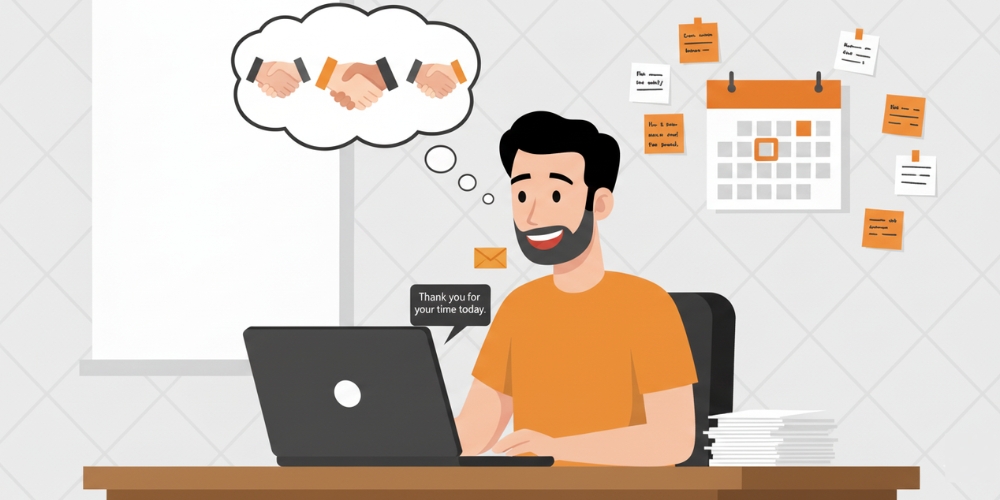
Your work doesn’t end once you walk out. Follow these steps:
Send a thank-you note
A panel interview thank you email is crucial. Send it within 24 hours. Address each panelist by name if you can or send one polished note to the lead recruiter. Mention one or two points discussed to make it personal.
Reflect and note down questions
Write down what went well, what tripped you up, and how you’ll answer better next time. This helps if you get a second round.
Stay patient
Companies often take longer to decide after panel interviews since more people are involved. Give them at least a week before following up.
Keep momentum
Continue applying elsewhere. Even if you feel it went well, don’t pause your job search until you have an offer in hand.
Email Builder — What to Do After a Panel Interview
Fill the blanks and generate a clean thank-you email. Dark widget, light fields, easy on the eyes.
Conclusion
A panel interview doesn’t have to feel like a firing squad. With the right prep, calm strategies, and a professional follow-up, you can turn a stressful situation into a stage to showcase your best self. Treat each panelist as a potential ally, not an opponent, and use the opportunity to learn about the team you may join. Preparation transforms nerves into confidence.


